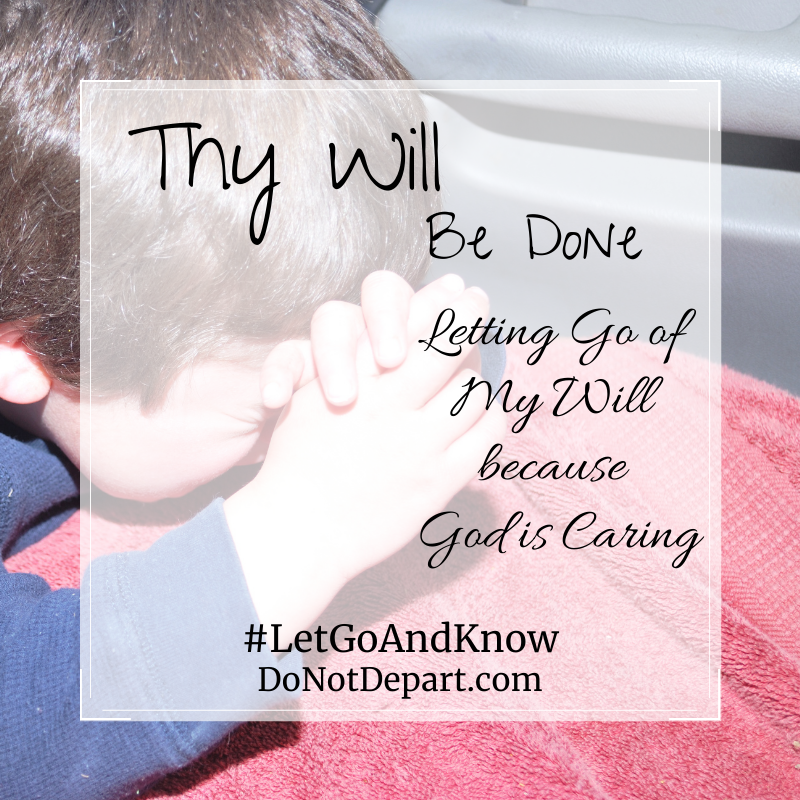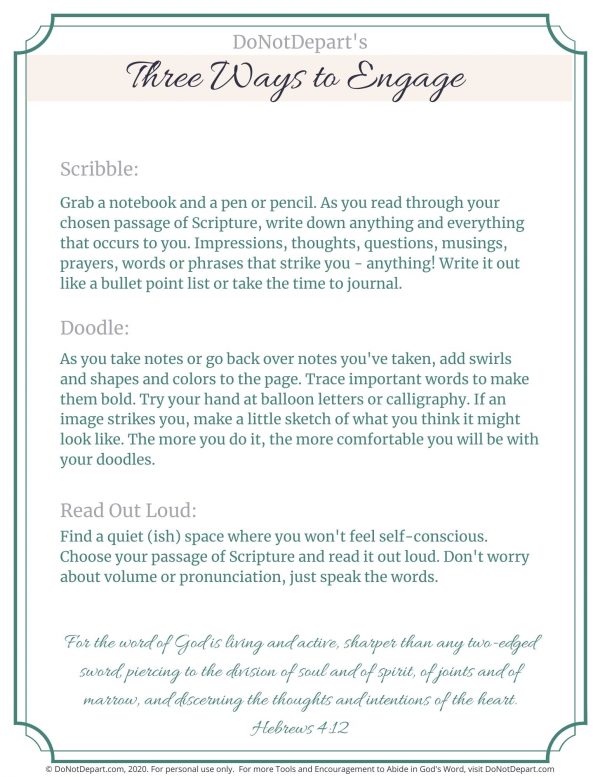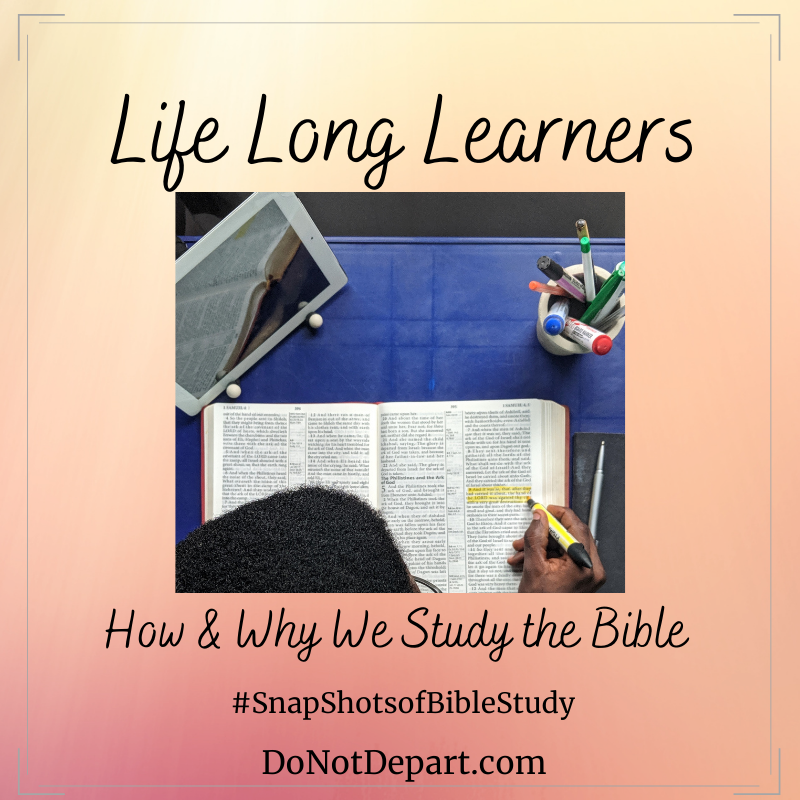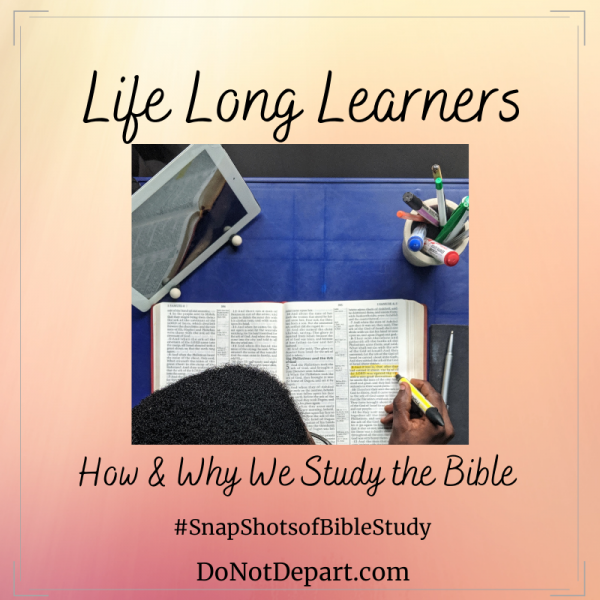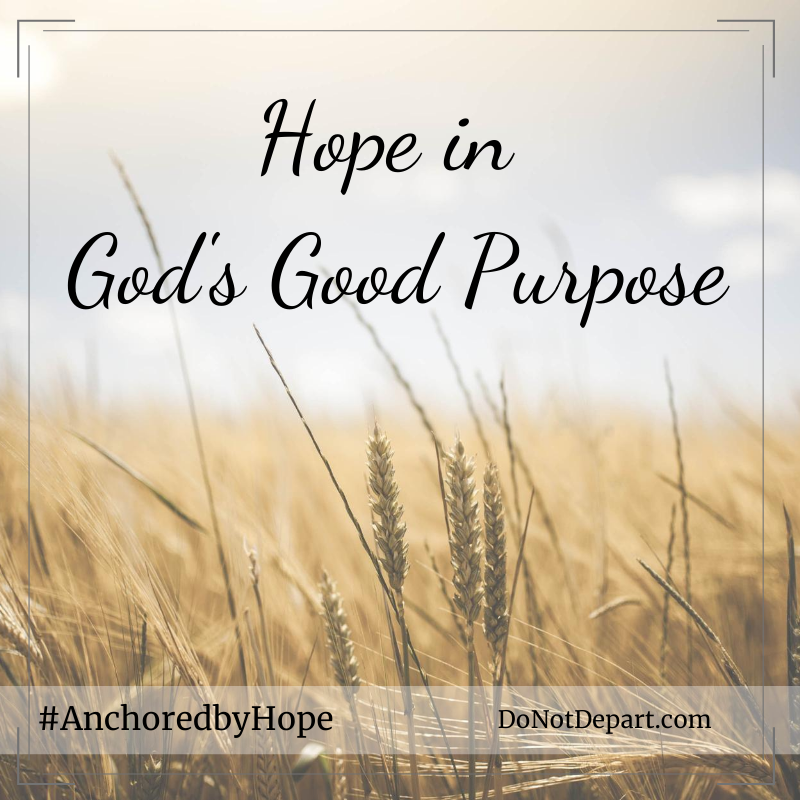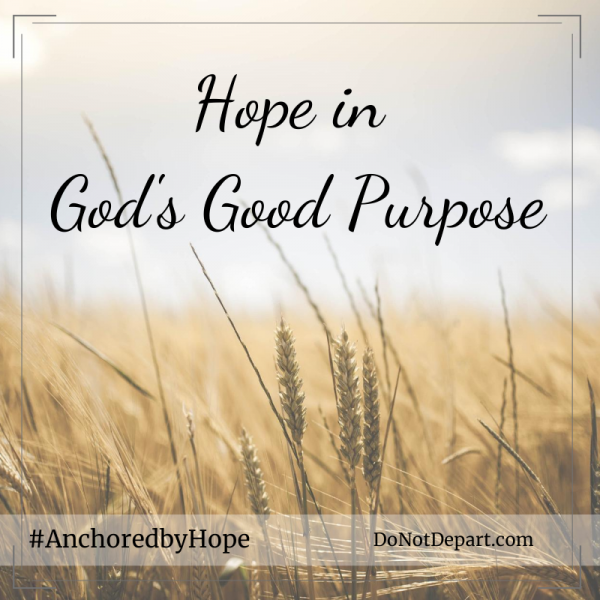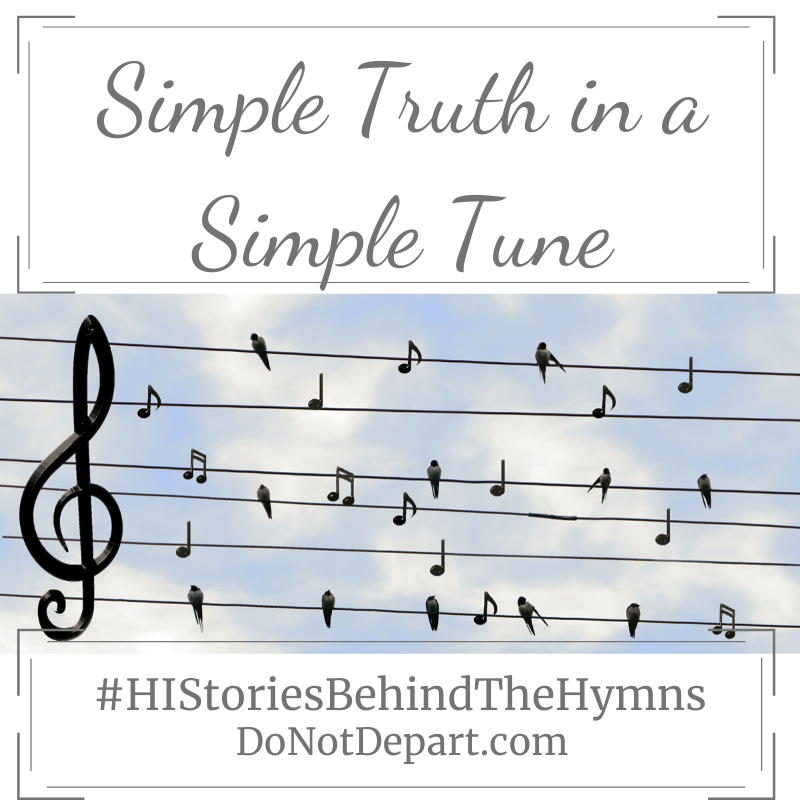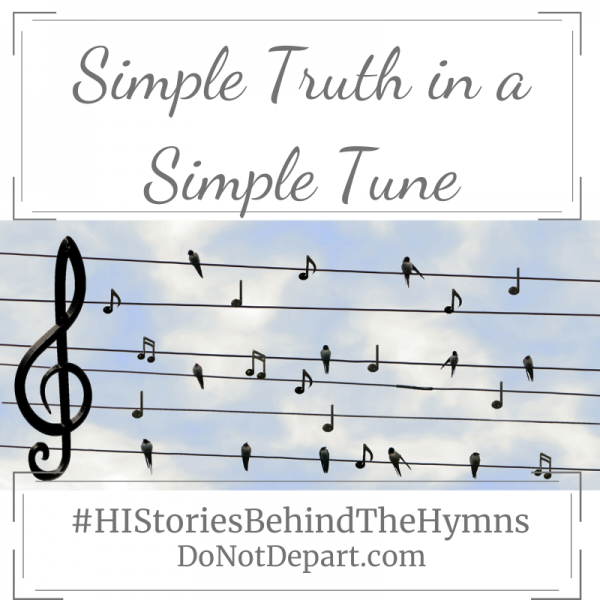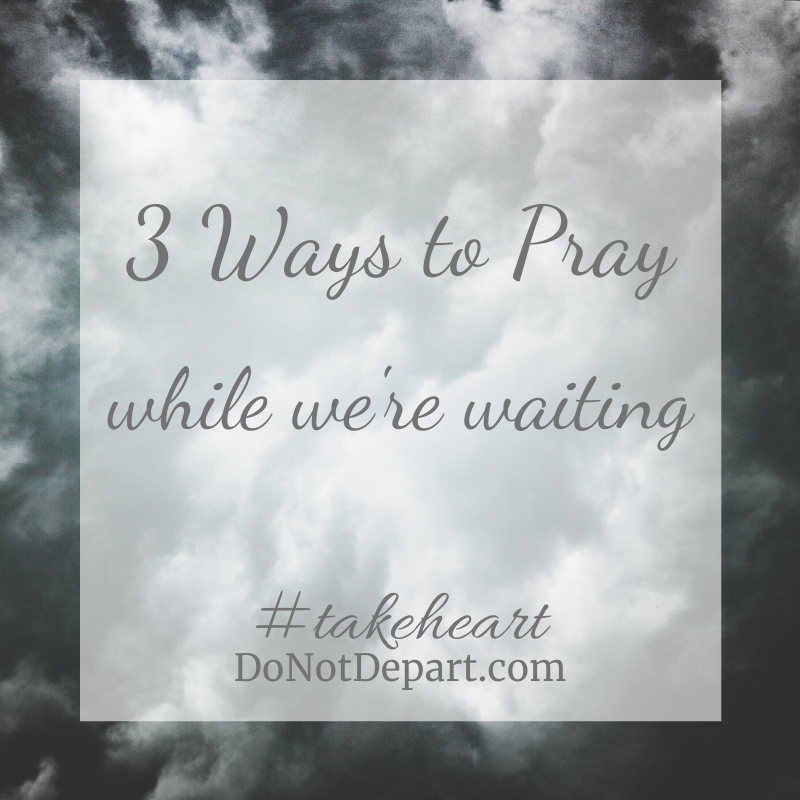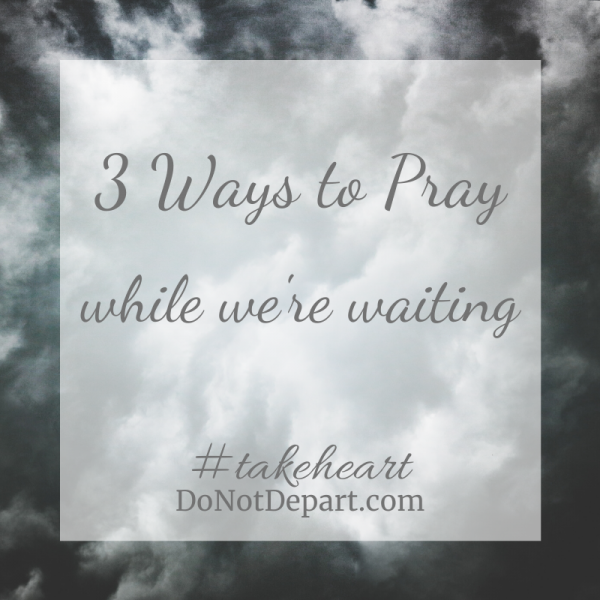Letting Go of My Will because God is Caring
My toddler’s favorite word – or at least his most frequent word – is “No!”. It’s his response to everything from “stop throwing toys” to “good morning”.
He is what you might call “willful”. He has in his mind how the day needs to go and how things need to be done. Even though I am older and bigger, he’s pretty sure he’s got it figured out and his way is right.
The thing is, this baby trusts me implicitly to take care of him. He knows on some fundamental level that I’m in charge and he has nothing to fear. If has a need, it will be met, even if he doesn’t like how I choose to meet it. Still, he fights, sometimes every minute of the day, to do what he wants to do when he wants to do it.
As part of our series on Letting Go, we’re going to look at God’s character as a caring, personally involved God. Because He is invested, not only in the grand scheme but in the nitty-gritty daily bread needs of our lives, we can let go of our willfulness.
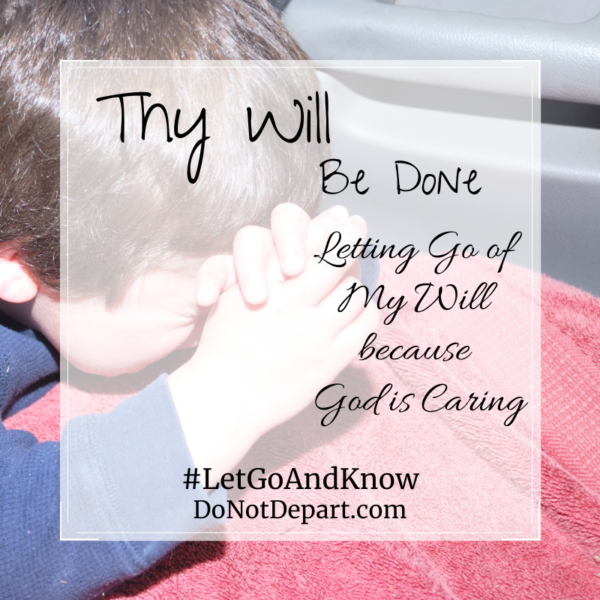
What is MY Will?
My will really is a beautiful gift from a caring Father who invites us to participate in the work He is doing. It is the ability to make choices. In the Reflections Bible Study from The Bible Project, Why God Gave Us Choice, Dr. Carissa Quinn sums it up this way,
“Humans were designed to rule as God’s partners on the earth…[because] God delights in sharing his good things with humanity. …But trust cannot be forced or coerced and that’s what this tree [of the knowledge of good and evil (Genesis 2:15-17)] is about.”
Adam and Eve faced this choice in the garden and it has played out in the lives of every Biblical character down the line from Abraham to Jonah to Peter. We too, must decide, “Are we going to let our sin rule us, or will we rule over our sin? Will we partner with God to bear his image in the world, or will we go it on our own?” Humanity’s Test
Much, much later, in another garden, Jesus would finally be the one to look at the choice and say, “Not my will but yours” (Matthew 26:39)
Because He Cares
With this choice before us – do we live by God’s wisdom or our own? – the next logical question is, why choose God’s way?
In the first installment of our series, Ali reminded us that we can let go of fear and control because God is sovereign. “He has a better way!” and “He is so very worthy of our surrender.”
Knowing He is working all things for our good and his glory (Romans 8:28) is more than enough reason to let go of our will. But I love knowing that it’s not just the big picture He’s taking care of. He’s interested in the little details too!
Christian philosopher, Kierkegaard, wrote in one of his prayers,
“You…are moved in infinite love, by all things. Even that which we human beings call an insignificant trifle, and pass by unmoved, the need of the sparrow, even this moves You; and what we so often scarcely notice, a human sigh, this moves You…”
God’s character is one of caring and involvement.
- “Do you know when the mountain goats give birth? Do you observe the calving of the does? – Job 39:1
- Are not five sparrows sold for two pennies? And not one of them is forgotten before God. Why, even the hairs of your head are all numbered. Fear not; you are of more value than many sparrows. – Luke 12:6-7
- Look at the birds of the air: they neither sow nor reap nor gather into barns, and yet your heavenly Father feeds them. Are you not of more value than they? – Matthew 6:26
- How precious to me are your thoughts, O God! How vast is the sum of them! If I would count them, they are more than the sand. – Psalm 139:17-18a
- “Behold, the virgin shall conceive and bear a son, and they shall call his name Immanuel” (which means, God with us). – Matthew 1:23 (quoting Isaiah 7:14)
Jesus is the Way
Throughout his time on earth, Jesus showed us how to let go of our own will and listen to God.
For I have come down from heaven, not to do my own will but the will of him who sent me. – John 6:38
“I can do nothing on my own. As I hear, I judge, and my judgment is just, because I seek not my own will but the will of him who sent me. John 5:30
Jesus knew God’s plan was to restore humanity to a right relationship with Him through his sacrificial death (John 10:18). Still, we see him in the garden, praying, weeping, sweating blood, wrestling with the agony of what he was facing.
And he withdrew from them about a stone’s throw, and knelt down and prayed, saying, “Father, if you are willing, remove this cup from me. Nevertheless, not my will, but yours, be done.” And there appeared to him an angel from heaven, strengthening him. And being in agony he prayed more earnestly; and his sweat became like great drops of blood falling down to the ground. (Luke 22:41-44)
In this great moment of trial, he was living out exactly what he’d taught, praying to “Our Father in heaven” (Matthew 6:9), our sovereign, ruler, certainly, but also our caring, loving parent.
To Immanuel, God with us, our Father who knows us personally and intimately we can pray with full confidence,
Your kingdom come, your will be done, on earth as it is in heaven. (Matthew 6:10)
